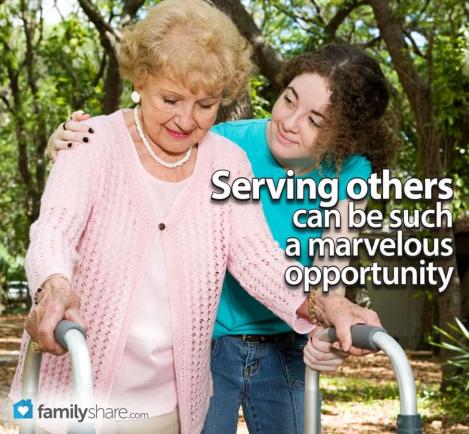
Teaching teenagers self-reliance can be both a challenge and an opportunity. However, teaching about self-reliance should not begin when they turn 13. Rather, teaching this important principle should begin the moment they are cognizant and able to do things for themselves. Here are a few steps to help you teach self-reliance.
Start early
Young children are amazing learners; they want to learn. We are so excited when babies take their first steps or say their first words. Why not be excited when they complete their first task? Picking up toys - and they seem to multiply - can be done together. Praising them for making decisions early teaches children they are indeed capable of making their own decisions.
Take baby steps
Learning to put their toothbrush back in its holder or putting away a pair of shoes is a baby step.
Be positive and praise often
Once they put away those shoes, tell them "good job." They quickly learn the difference of when they have done something well and not so great just by the tone of your voice. Even when they are teenagers, they still like to hear you say, "Thanks for doing that."�
Watch from a distance/don't hover
Watching from a distance can be very hard. We have the tendency to run right over and help. Parents who "hover"� are now called "helicopter parents." Unfortunately, these parents never allow their children to do anything for themselves or experience failure, which can be a powerful lesson.
Teach by example
One of the most influential concepts is teaching self-reliance by example. By following through with a project, you will help your children see the joy from completing a task, from start to finish. Perhaps, including them in the project from the beginning may help them see for themselves that they, too, can do it.
"Never do anything they can do for themselves"�
Yes, it is easier to do everything for your children, but doing everything for people can create an unhealthy dependence.
Let them make mistakes
Often, their mistakes, large or small, can create anxiety and grief for the parent. Perhaps, the question to ask is: "What did you/what should you learn from this experience?"� By asking the question, children will begin to think and make the appropriate connections.
Be involved in service
Serving others can be such a marvelous opportunity to help young people understand about self-reliance.
So, as you begin your task of teaching self-reliance to your children, remember these fundamental steps. Then, when they are teenagers, they will have had time to practice this principle.

